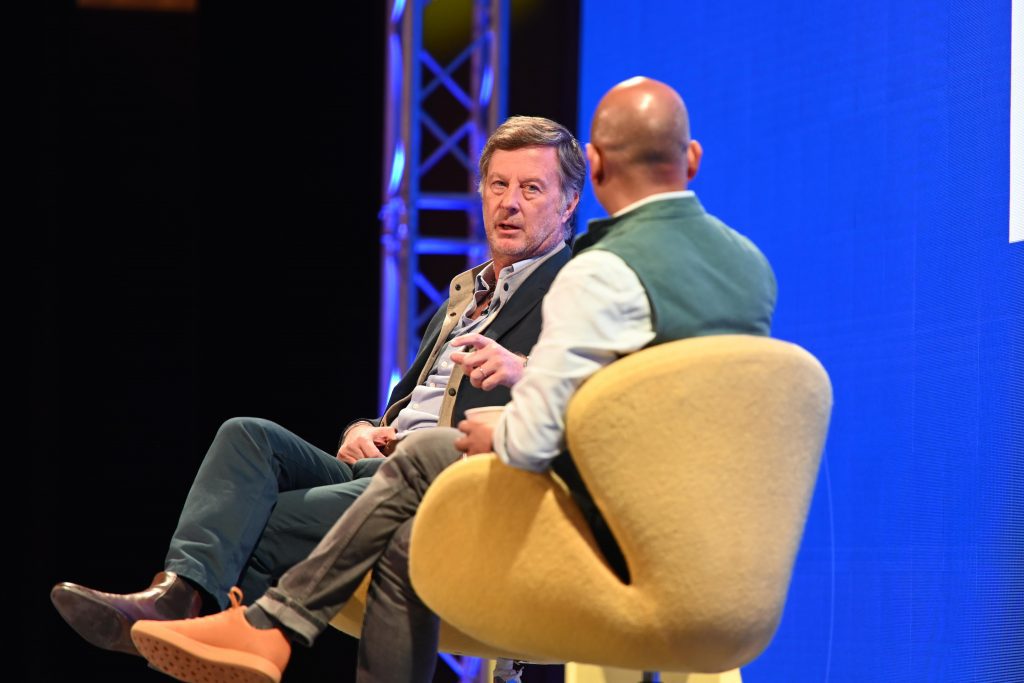
Skift Take
It’s tough keeping track of all of Accor’s brands. But CEO Sebastien Bazin says the strategy is working.
“Thank god it’s behind me,” said Accor chairman and group CEO Sebastien Bazin this week on the company’s many reorgs, mergers and transformations over the years. Since he took charge of the company in 2013, Bazin counted four major “transformations” in the group, turning it from a “sleepy” French hotel company to a global giant in leisure and travel.
Speaking on stage at the Future Hospitality Summit in Dubai, Bazin alluded to the fact that most of the group’s biggest overhauls are done, but that more brands would continue to join the portfolio.
“We’ve changed Accor upside down. Accor has been terrific,” he said. “It was asleep, and probably fading away. It was super strong in Europe [and] very strong in economy and midscale, but seven years ago, we decided to wake up. So we’ve had four transformations. Thank god it’s behind me.”
“We needed to be more diversified and focused on being a service operator, no longer real estate investors. We needed to grow our diversity of brands, and segmentation, luxury and lifestyle and we started to conquer South America, Asia, China, Middle East and Africa.”
Accor now operates around 5,600 hotels, half of which are in Europe, and (by Bazin’s own count) 47 brands. These include long-standing budget hotels like Novotel and Ibis, traditional luxury brands like Raffles and Fairmont, and non-hotel ventures such as Paris Society and Rikas, two restaurant companies with which Accor has strategic partnerships.
‘For Sure’ More Brands
Arguably Accor’s two largest changes came in 2021 and 2023, when the group entered a joint venture with Ennismore and engulfed its brands, and two years later when Accor decided to split its organization in two pieces: one for the economy segments and another for luxury and lifestyle.
When Bazin joined the company, it had only a dozen brands. His belief is that in the era of technology, customers have enough resources to be able to discover them all.
Asked if Accor is “insane” for having so many brands, he said: “We have 47 brands and counting. What do you mean insane? It’s smart. It’s not too many. When I started, we had 12. Make sure they’re different from one another, make sure you have a competent channel, such as Accor.com, and make sure most of them are local and relevant. Some global brands, some local brands, some linked to wellness.”
“Customers today have access to information 24/7, whether it’s through Accor.com, Booking, Trivago, or Expedia. They know our brands exist. Do we have enough brands? Yes. Are we going to have more coming? For sure.”
What New Brands Could There Be?
In the first half of this year, Accor generated about $546 million (€504 million) in EBITDA, a company record — up 13% year over year. Over that same period, room inventory grew 4.1%.
Accor’s latest brand addition – though it didn’t buy it outright – was Our Habitas joining Ennismore.
The group also has a suite of what it calls “regional brands” that it deploys in specific markets. For example, in 2011, Accor acquired the Sebel brand, which is designed specifically for Australia and New Zealand. So, what does Bazin think about market opportunities?
“America belongs to the Americans, you have six groups controlling 90% of the supply and they are very good. China will be controlled by Chinese operators in five to 10 years. That’s fine, I’m running the rest. China is a country where you must play, but you have to do it with a Chinese operator. China will be the hospitality market in the world in the next five to seven years. India will probably be the largest hospitality market 20 years later.”

